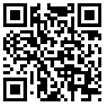Dongguan Universal Testing Technology Co., Ltd
Contact: Miss Rong
Mobile phone:15322404007
Mailbox:sec@utl-lab.cn
Contact: Miss Chen
Mobile phone:13829128006
Mailbox:utl@utl-lab.cn
Address: 303, floor 3, Huihai building, No. 631, yinlang South Road, Shuikou Industrial Zone, Shuikou village, Dalang Town, Dongguan City
It's the beginning of school. In the new semester, I'm going to send out new books and buy stationery such as book covers. But are those colorful plastic book covers really safe?
In fact, the topic of book covers has come into the public's attention as early as 2015. Mr. Wei, from Hangzhou, Zhejiang Province, accidentally found that his daughter's book covers had peculiar smell. After taking them for testing, he found carcinogens, which made parents panic: it is said that these colorful book covers contain a large amount of plasticizers - phthalate esters (PAEs) and polycyclic aromatic hydrocarbons (PAHs) and other carcinogens! This is internationally recognized as a strong carcinogen!
Rumors are true and false, data speak!
The so-called plastic book cover can be roughly divided into two types: one is similar to the plastic film used to paste the window glass and the mobile phone screen, which has been cut according to the size of the book, and can be directly pasted on the textbook after tearing off the backing paper. This kind of book cover is generally in bulk; the other is like a bag, which can put the outer page of the book in and take it down.
Most of the book covers have no trademark, no manufacturer, no production batch. They are basically "three no" products. They smell very plastic and feel rough with hands.
*Shanghai Quality Supervision Department recently carried out the quality and safety risk monitoring of bag cover, which showed that 83% PAEs plasticizer project in 30 batches of related products did not meet the requirements.
*The monitoring results of the quality and safety risk of the book cover launched by Wuhan Quality Supervision Bureau: of the 50 monitoring samples, 8 exceeded the standard. This time, it was found that the lowest exceeded the standard by more than 5 times, and the highest exceeded the standard by 42 times.
*Not long ago, Jiangsu Provincial Quality Supervision Department also sampled 120 batches of plastic bag cover samples from physical stores and e-commerce platforms, including 67 batches of bag cover and 53 batches of bag film. The risk monitoring results show that 49 batches fail to meet the relevant requirements, accounting for 40.8% of the total number of samples. The non-compliance items are solvent residues, phthalate esters (PAEs) and polycyclic aromatic hydrocarbons (PAHs).
Unqualified book cover is very harmful!
*PAEs, also known as plasticizer, plasticizer is similar to artificial hormone, which will harm male reproductive ability, promote female precocious puberty, long-term large-scale extraction will lead to liver cancer, because children are in the endocrine system, reproductive system development stage, plasticizer will bring more potential harm to children. It can enter the human body through breathing, diet and skin contact, causing harm to human health. Many children have the habit of licking and biting books. Once the plasticizer in the book cover exceeds the standard, they may swallow the plasticizer precipitated directly. If other students do not have such a hobby, if they do not wash their hands and grab food in time after reading the textbook, they will also eat the plasticizer precipitated on the book cover with adhesive tape. In the long run, the consequences are unimaginable!
*Polycyclic aromatic hydrocarbons (PAHs) are the first and most common chemical carcinogens. Benzo {a} pyrene is a strong carcinogen, which can enter human body through food, respiration and skin contact. EU, the United States, New Zealand and other countries and regions have issued Taiwan's laws on the restriction and prohibition of PAHs.
Stationery and children "day and night, close contact", must be safe and non-toxic as the first principle!
UTL Huayu testing summarizes the suggestions given by online experts:
1. In line with the concept of saving and environmental protection, it is suggested to return to the traditional way and try to use paper book covers. If you choose the plastic bag cover, pay attention to check its raw materials. The raw materials marked as polyethylene (PE) or polypropylene (PP) can be bought. If pet and PVC plastics or raw materials are not marked, you should not buy them. If there is no product, you can not buy them. The source of raw materials can not be verified, and the possibility of medical waste can not be ruled out.
2. Don't buy the book covers with pungent taste, too soft and too bright colors, but also look at the clarity of the book covers. The book covers made of recycled plastic wastes look paste, and can't read clearly across the book covers. Try to use strong paper covers such as traditional kraft paper.
3. In the use process, keep good hygiene habits, clean the oil stains on your hands before contacting the book cover, which can greatly reduce the migration of plasticizer ingredients; do not lick your fingers when using, so as to avoid the harmful ingredients from moving into your body through saliva; wash your hands in time after contacting the book cover, so as to reduce the stay of the migrated ingredients on your skin.
The above are some questions about the discussion of the book cover in this issue. I believe that through the above content, you have also understood whether the book cover should be used or not!
More information: 15322404007 (Miss Rong) / 13686662624 (Miss Chen)

15322404007 Miss Rong
Copyright © 2018 Dongguan Universal Testing Technology Co., Ltd Copyright Record number:粤ICP备18042143号-1